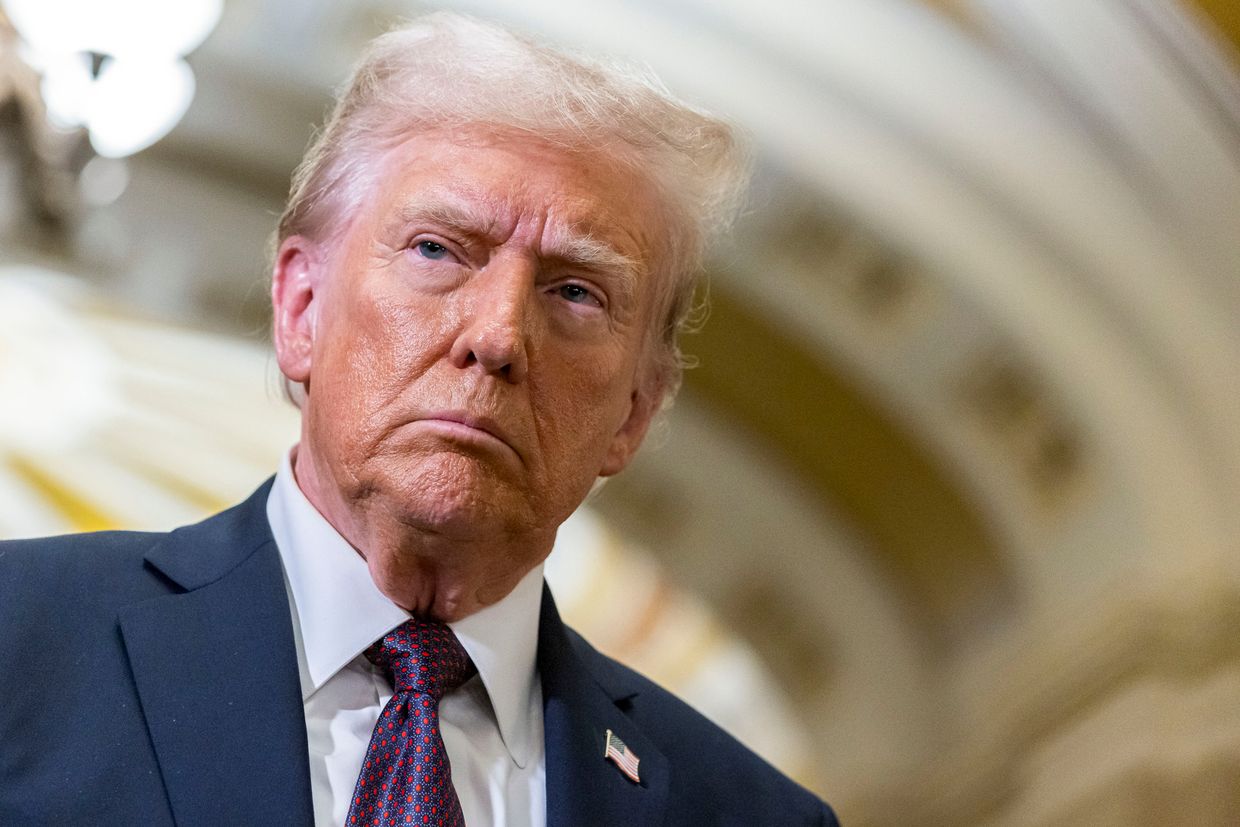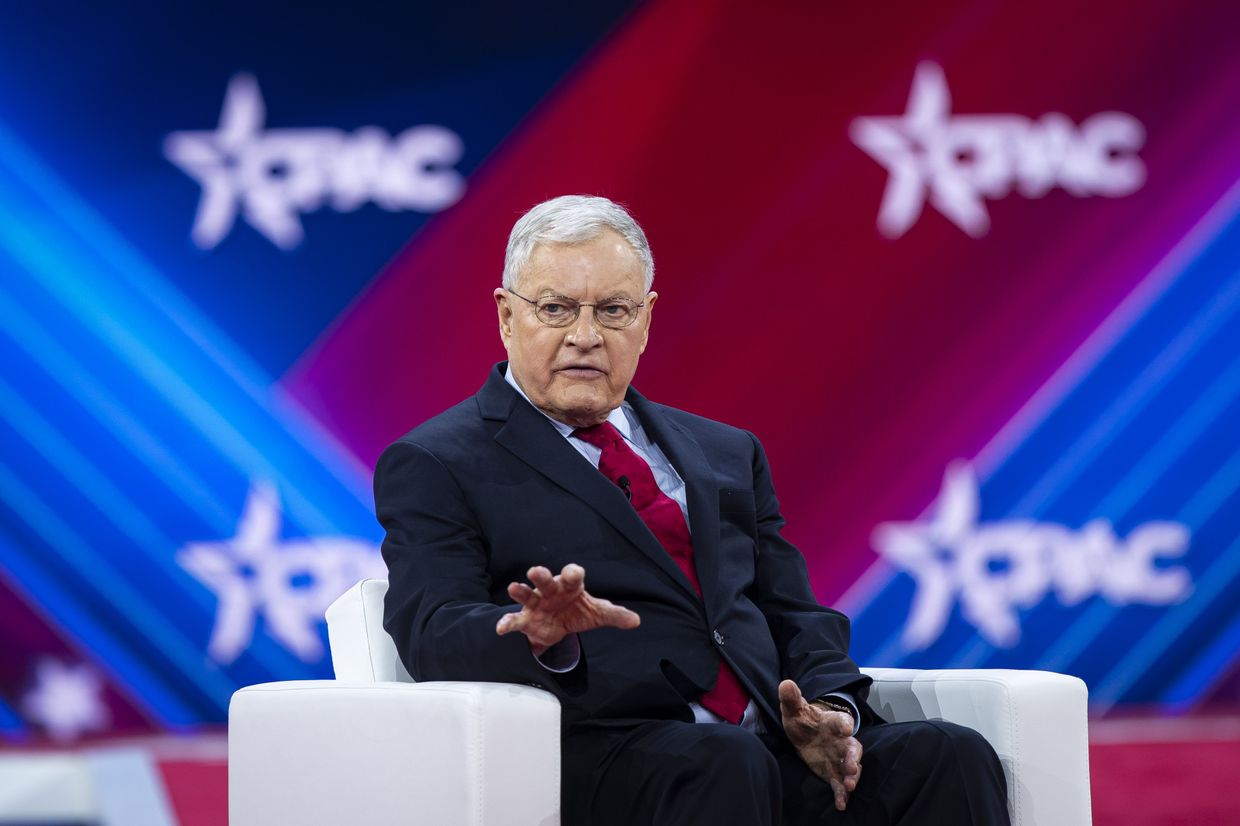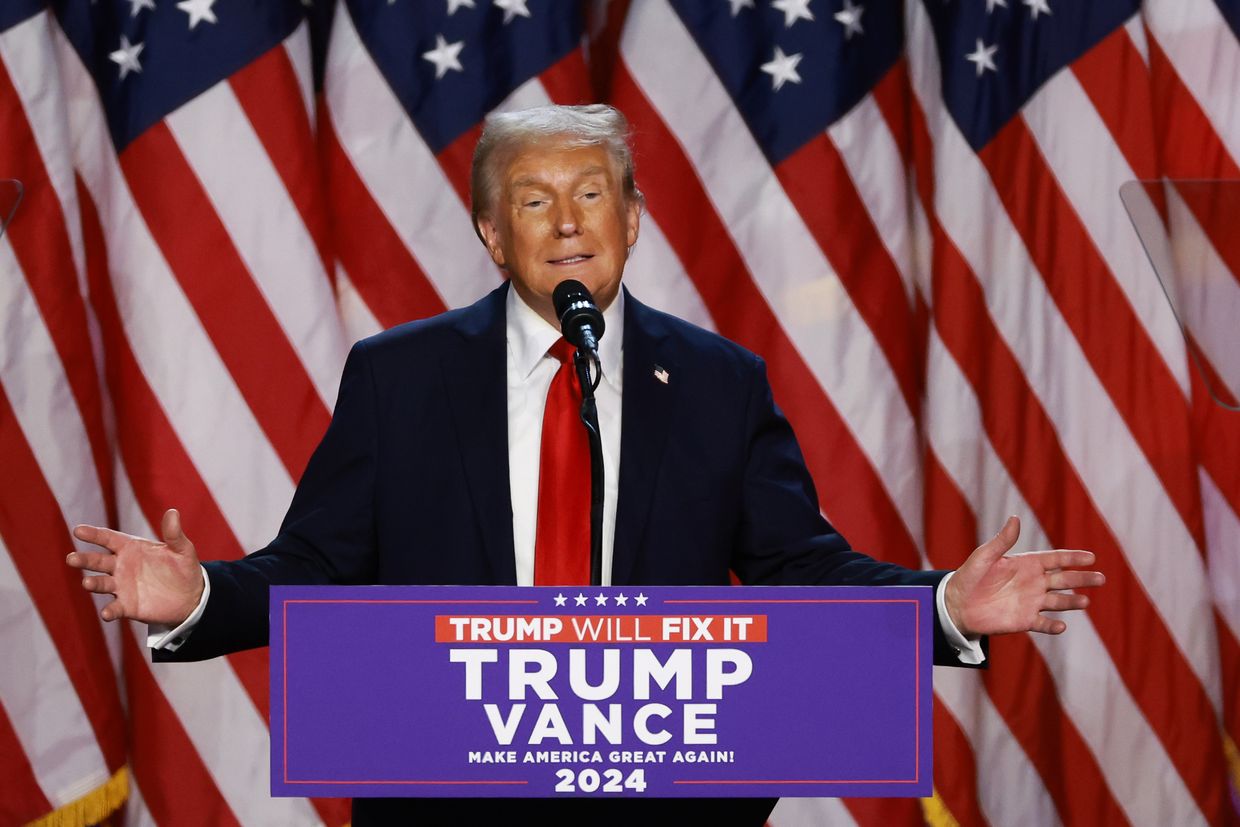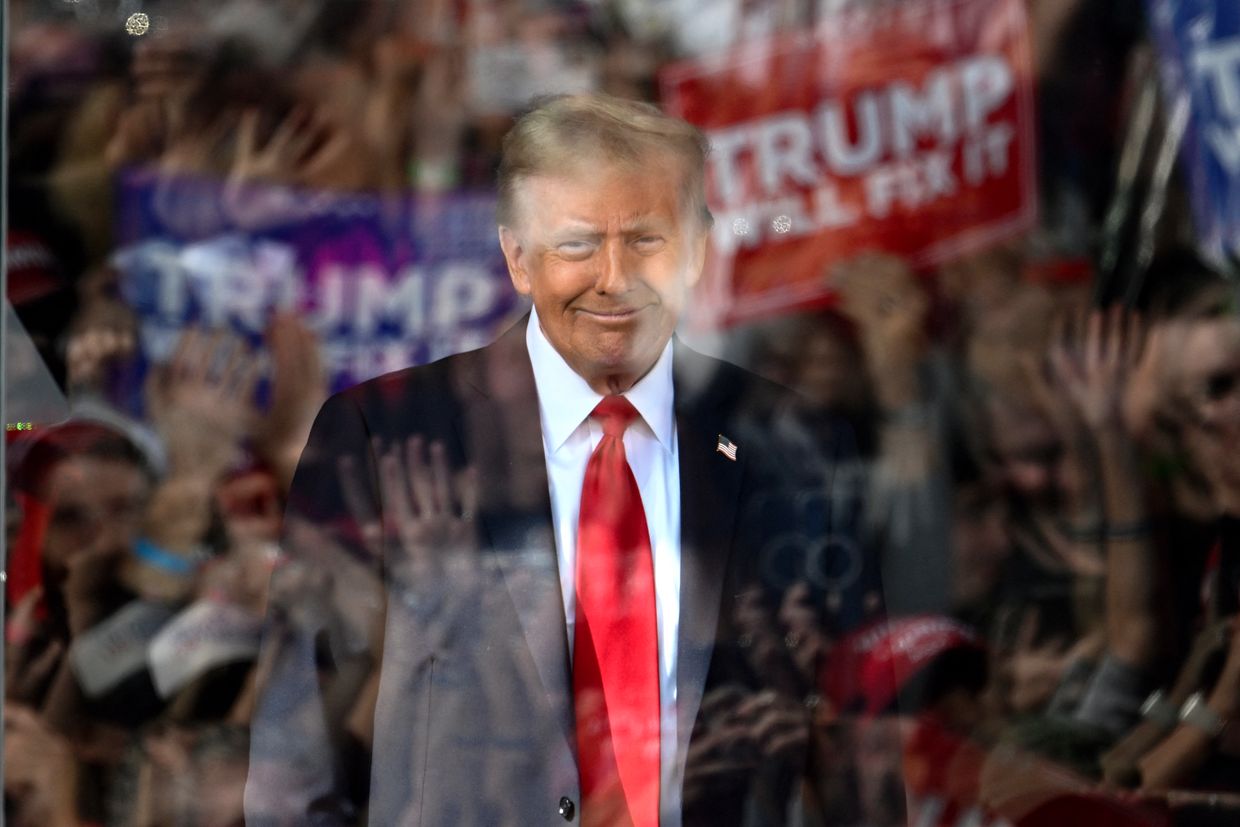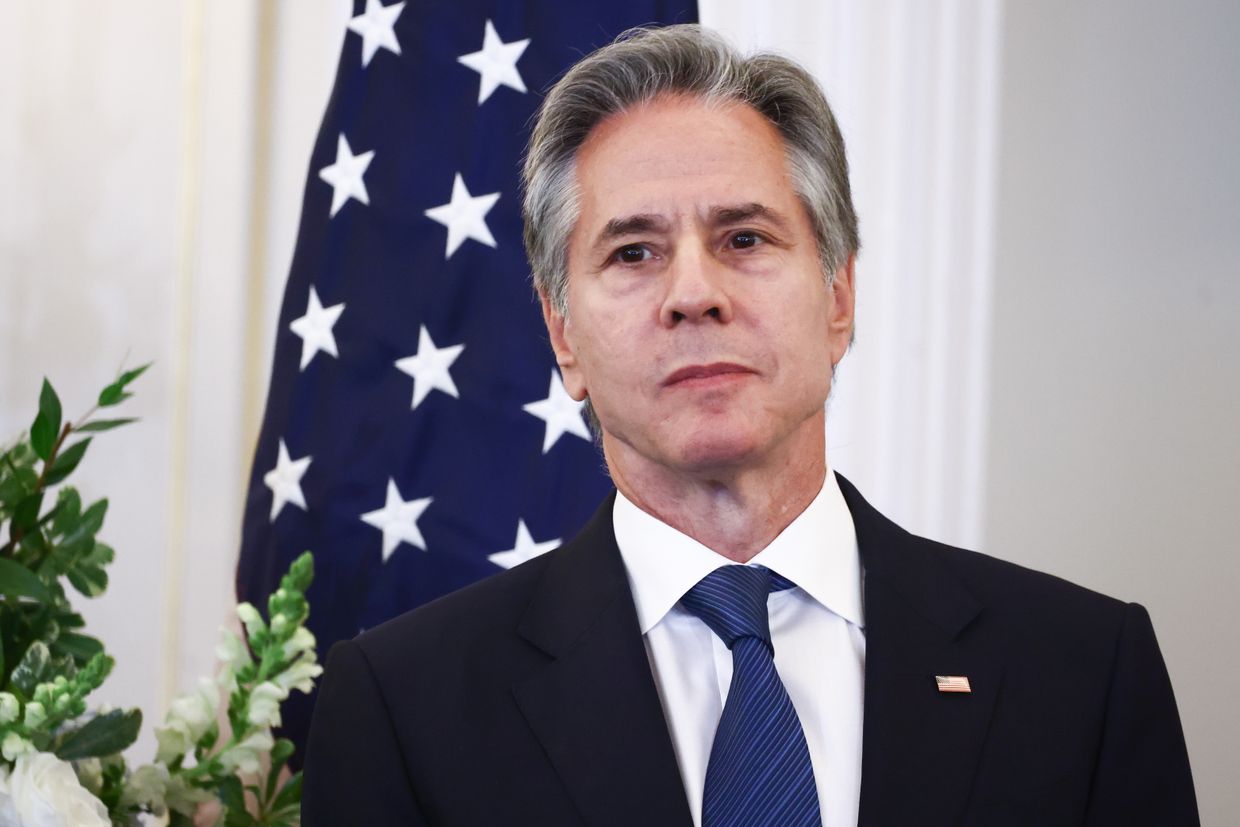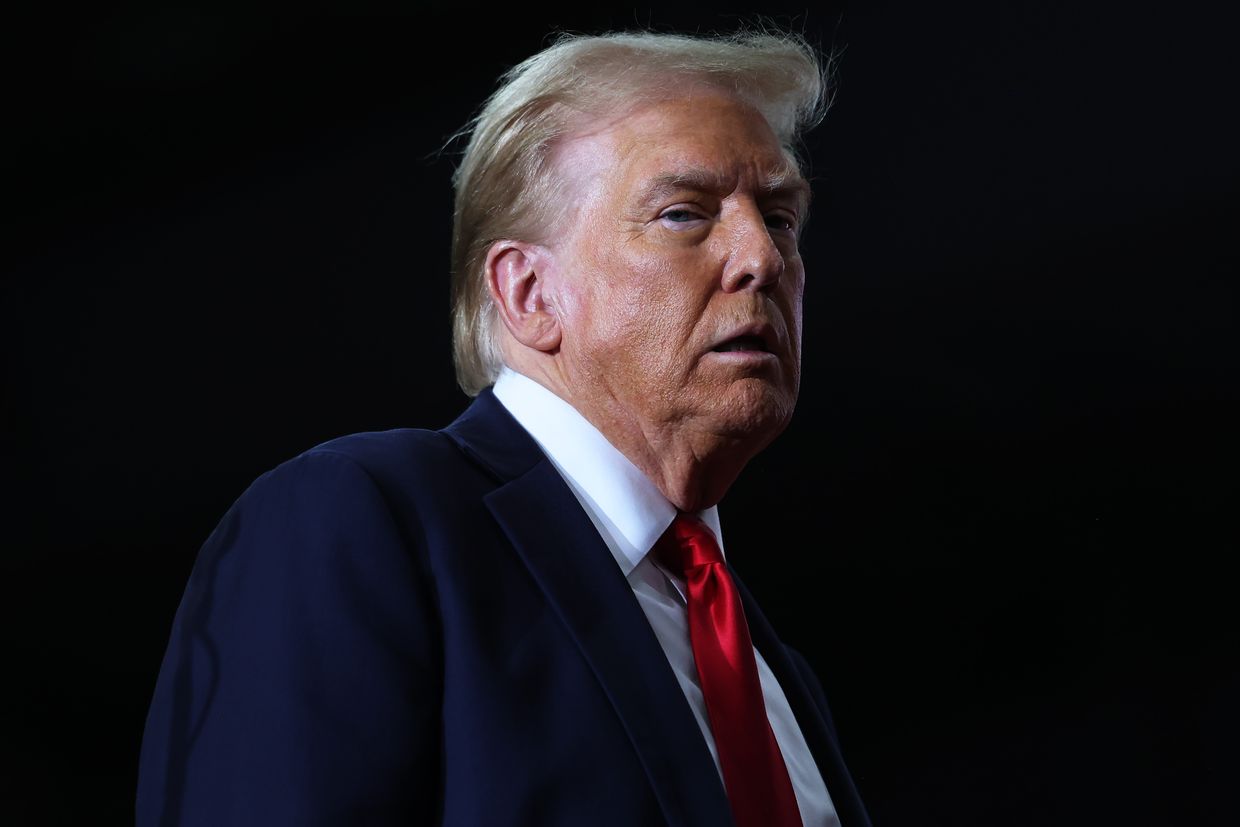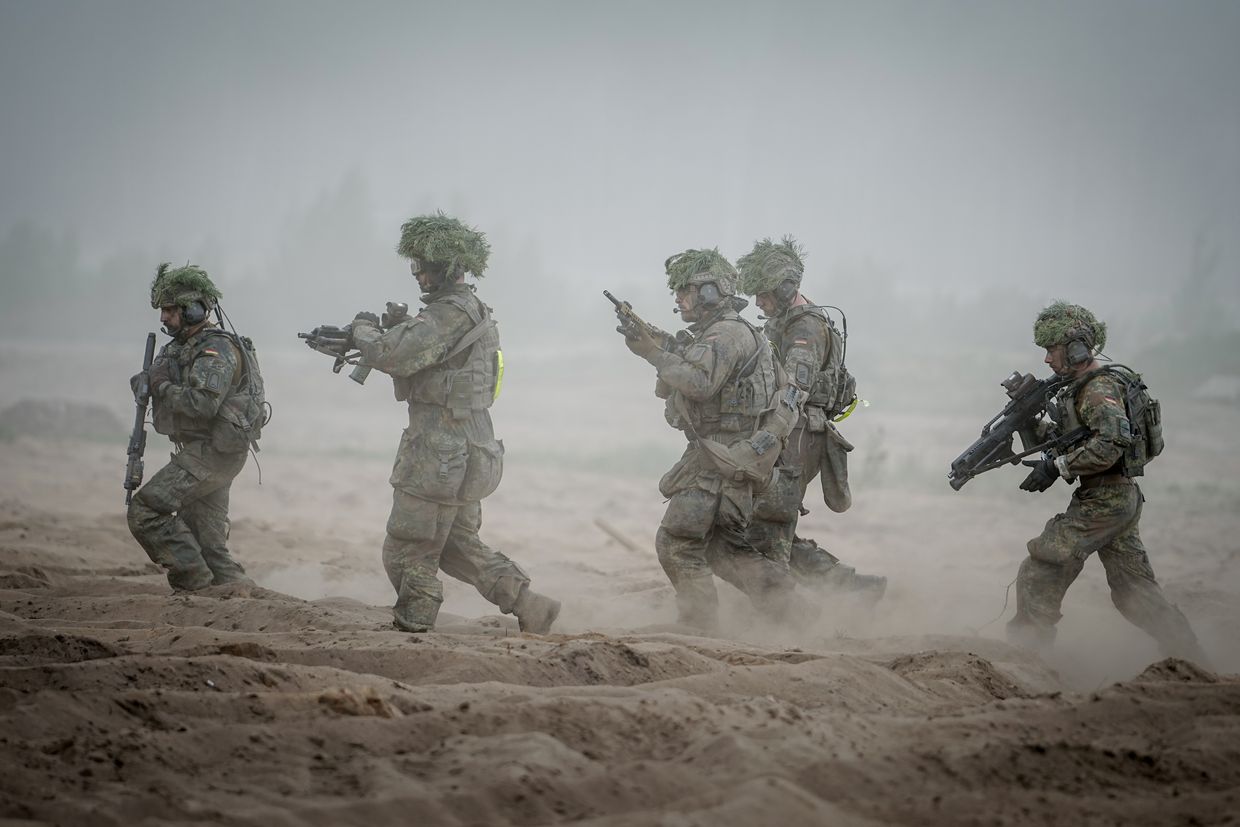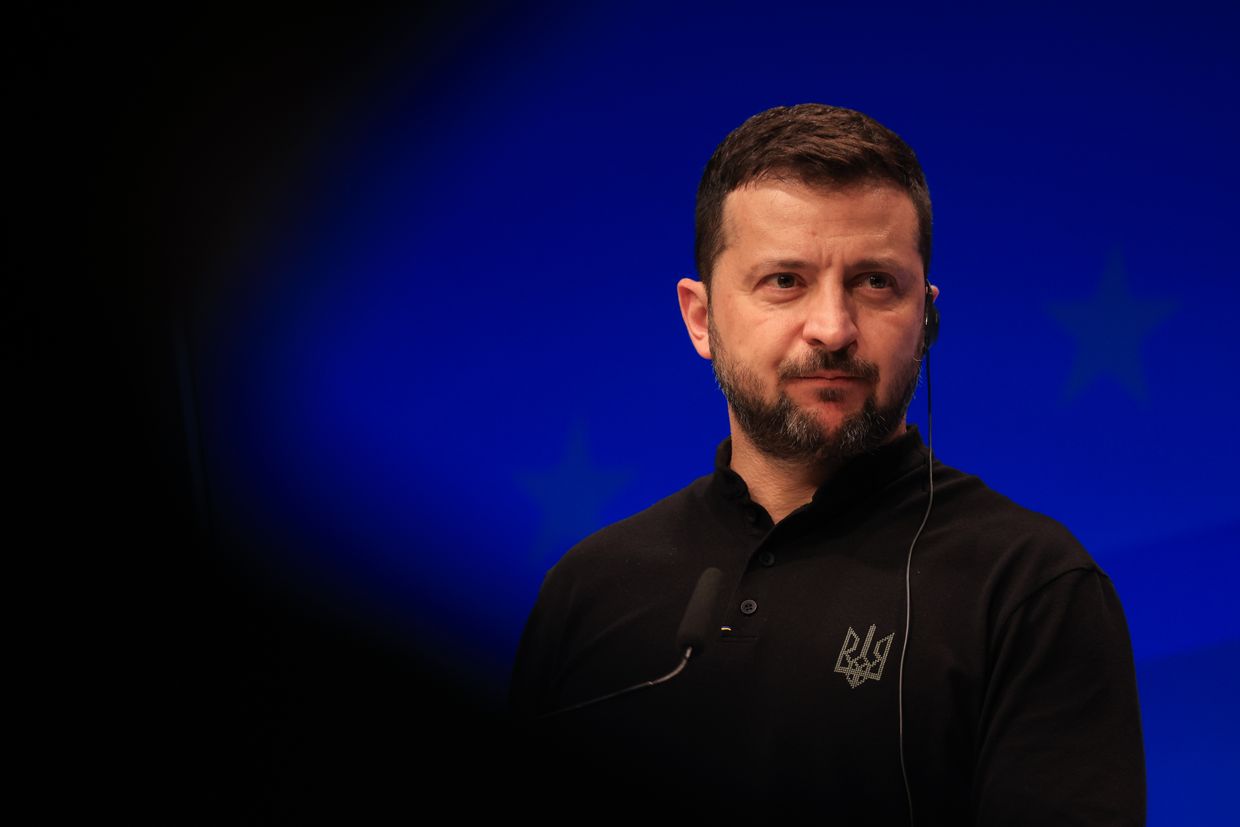What are Trump's options on Russia's war against Ukraine?

President-Elect Donald Trump visits Section 60 in Arlington National Cemetery on Jan. 19, 2025 in Arlington, Virginia. (Anna Moneymaker/Getty Images)
As U.S. President-elect Donald Trump is set to take office on Jan. 20, Ukraine's fate hangs in the balance.
While some potential details of Trump's future peace proposals have been leaked, the overall plan still remains unclear.
Since the Nov. 5 presidential election, Trump and his team have sent mixed signals on whether their potential peace proposals will be favorable to Ukraine.
Based on their public statements, Trump and his team have realized the complexity of the conflict and revised the timeline for achieving a peace deal. Previously, Trump talked about a 24-hour deadline, but now it has become a six-month timeframe.
"Over the past month and a half, they have realized that the contradictions between Ukraine and Russia are quite deep and complex," Ukrainian political analyst Volodymyr Fesenko told the Kyiv Independent. "This problem cannot be resolved quickly or with a simplistic approach. They are adjusting their approaches and deciding how to move forward."
Jenny Mathers, a lecturer in international politics at the U.K.'s Aberystwyth University, said that "Trump wants an end to the war and he wants credit for achieving it."
"So we should expect plenty of drama and bold statements, perhaps backed up by bold actions," she added.
"But would those bold actions favor Russia or Ukraine? There are signs pointing both ways. Trump clearly admires (Russian President Vladimir) Putin and finds his statements persuasive. But Trump also wants to be seen as strong in his own right, so he might react badly to any suggestion that he is acting as Putin's pawn."
A mixed bag
President-elect Trump has nominated people with polar views on Russia's war against Ukraine.
Tulsi Gabbard, Trump's nominee for director of national intelligence, has opposed U.S. support for Ukraine and had previously been accused of promoting Russian narratives.
Peter Hegseth, Trump's pick for defense secretary, is an isolationist who has called for reducing the U.S. commitment to NATO. He backtracked on his statements during confirmation hearings on Jan. 14, saying that the U.S. won't leave the alliance and that "we know who the good guy is" in Russia's war against Ukraine.
Michael Waltz, who is expected to become Trump's national security advisor, and Marco Rubio, Trump's pick for secretary of state, are seen as more pro-Ukrainian and hawkish on Russia than other nominees.
Keith Kellogg, Trump's nominee for special envoy for Ukraine and Russia, is also seen as more favorable to Kyiv. He has stated that Ukraine should negotiate from a position of strength.
Potential peace plan
Kellogg has co-authored a peace plan that would freeze the front line in Ukraine, take Ukraine's NATO accession off the table for an extended period, and partially lift sanctions imposed on Russia.
According to his proposals, the U.S. will continue sending military aid to Ukraine and provide security guarantees to Kyiv to prevent further Russian aggression.
The Telegraph also reported on Nov. 7 that, under one of the peace plans being considered by Trump, he might call on British and other European troops to enforce a buffer zone that the president would attempt to establish in place of the current front line in Ukraine.

Meanwhile, Rubio said on Jan. 15 that both Ukraine and Russia would have to make concessions to end the war.
"Any quick deal (even over six months) would likely end the fighting along the current line of control while ensuring that Ukraine has long-term protections and that Russia has financial/economic incentives to stop fighting," Michael O'Hanlon, a foreign policy expert at the Brookings Institution, told the Kyiv Independent.
"Beyond that, I'm not sure what the Trump team plans."
Trump's shifting timeline
As the specific details of Trump's peace plan remain unclear, its timeframe has been shifting.
Trump said on Jan. 7 that peace would be achieved within six months. Kellogg said on Jan. 8 that a concrete plan needs to be established within the administration's first 100 days.
Stephen Biddle, a defense policy expert at the Council on Foreign Relations (CFR), told the Kyiv Independent that "the longer six-month timeline is Trump's effort to weasel out of an unrealistic promise."
Thomas Graham, a distinguished fellow at the Council on Foreign Relations, also said that "the team has just realized that it will take more time and effort to reach a deal."
"The fact that (Trump) and his team have stepped back from insisting he will end the war in 24 hours to talking about a process that will take months is encouraging and in keeping with his and his team's practice of walking back some of his most flamboyant campaign promises to manage expectations among voters," Mathers said.
The revised policy may also have had an impact on Trump's special envoy, Kellogg.
Zelensky said on Dec. 19 that Kellogg would visit Ukraine before Trump's inauguration in January.
However, Kellogg postponed his visit until after the inauguration due to U.S. restrictions on unauthorized negotiations by private citizens with foreign governments, Ukrainian Foreign Ministry spokesperson Heorhii Tykhyi said on Jan. 10.
"Kellogg postponed his visit because they may have started to realize that the idea of ending the war in 24 hours, or even within six months, is too ambitious and complicated," Oleksandr Merezhko, head of Ukrainian parliament's foreign affairs committee, told the Kyiv Independent.
"They are now more realistic and are slightly adjusting their strategy."
Positive developments
Some statements made recently by Trump and his allies appear to point in the direction of a peace deal from a position of strength.
"I want to reach an agreement and the only way you're going to reach an agreement is not to abandon Ukraine," Trump said in an interview with the Time magazine published on Dec. 12.
Kellogg said on Jan. 8 that the president-elect's aim is not to "give something to Putin or the Russians" but to "save Ukraine and save their sovereignty."
Meanwhile, the Financial Times reported on Jan. 9, citing two European officials, that U.S. assistance to Ukraine would persist following Trump's inauguration on Jan. 20.
"The whole (Trump) team is obsessed with strength and looking strong, so they're recalibrating the Ukraine approach," one official said. The official added that Trump's camp is cautious about avoiding comparisons with President Joe Biden's chaotic withdrawal from Afghanistan, which they do not want to see replicated in Ukraine.
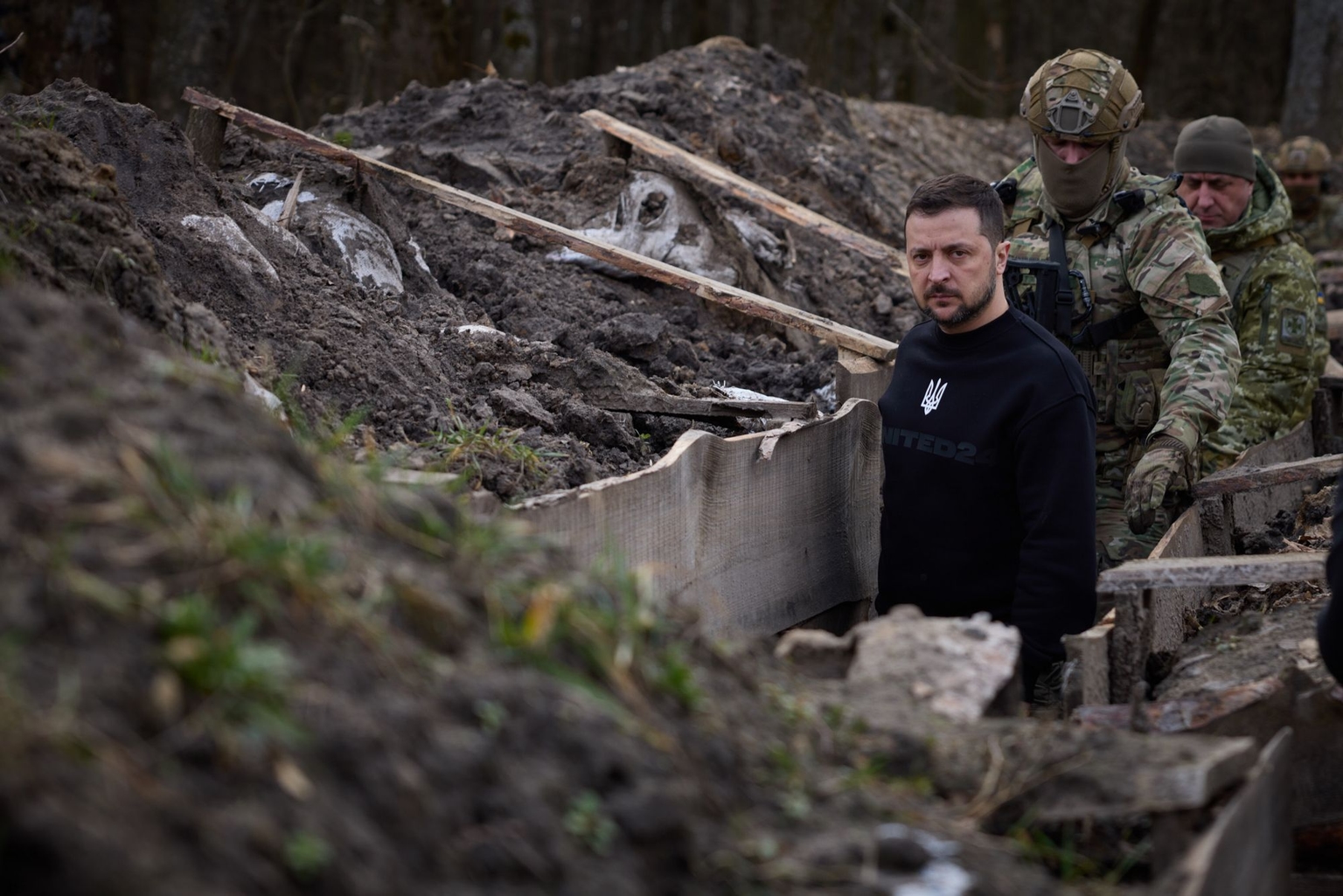
Trump advisors are also developing a comprehensive strategy to impose sanctions on Russia to pressure it towards a peace deal, Bloomberg reported on Jan. 16, citing anonymous sources familiar with the discussions.
"I don't think Trump wants to appear weak relative to Putin, or to be responsible for 'losing Ukraine' the way Biden 'lost' Afghanistan," Roland Paris, a professor of international affairs at the University of Ottawa, told the Kyiv Independent. "He wants to be seen as a peacemaker who ends, rather than starts, wars — and he wants to look 'strong' in doing so."
Biddle said that "the only way (Trump) could end this war as quickly as he promised in his campaign is if he could get Ukraine to surrender."
"I doubt that Trump fancies having an outright defeat in Ukraine get labeled as 'Trump's Afghanistan' — not a good look for someone as obsessed with winning as he is," he added.
Negative developments
But some of Trump's statements point in the opposite direction.
He claimed on Jan. 7 that Biden's support for Ukraine's NATO membership had led to the war. He also claimed, without any evidence, that there had been a deal that Ukraine would not join the alliance.
"They had a deal (not to let Ukraine into NATO), and then Biden broke it," Trump said.
Mathers argued that "if Putin is able to persuade (Trump) that the only path to a stable peace is by Russia getting all of its demands met, there is a real danger that Trump will agree to support that position."
"The experience of his first term as president suggests that he is impatient and not good at nurturing the kind of process that would be required to move from the current situation to a stable peace. This may not be good news for Ukraine," she added.
Mathers also said that "Trump seems more attracted by the simple solution to a problem than trying to work through complexity, such as what kind of a meaningful security guarantee for Ukraine would the U.S. be willing to support."
Biddle said that "to get a deal that doesn't look like a sellout, Trump will probably have to threaten a major expansion in U.S. support for Ukraine unless Putin compromises and that will be both risky and counter to the increasing anti-Ukrainian sentiment among Trump's base."
"So, I suspect that Trump may stall and try to change the subject rather than facing the uncomfortable choice between midwifing an embarrassing defeat and threatening an expensive and unpopular escalation," he added.
Trump-Putin meeting
But even if Trump's peace proposals favor Ukraine rather than Russia, a lot depends on Russian President Vladimir Putin.
Putin's spokesman, Dmitry Peskov, said on Jan. 10 that the Kremlin "welcomed" Trump's "readiness" for talks but added that plans for any face-to-face meeting would not be drawn up until after his inauguration.
Trump also said on Jan. 13 that he planned to meet Putin "very quickly," adding that the Russian leader "wants to meet" as well.
"I actually find the prospect of a face to face meeting between the two men very alarming, especially if no other comparable political figures are present," Mathers told the Kyiv Independent. "We know that Trump admires Putin as the archetype of the strong man leader that Trump himself aspires to be."

She added that, after a meeting between Putin and Trump at the 2018 Helsinki summit, "Trump emerged looking beaten down and Putin was full of smiles."
"Everything Trump said at the press conference immediately afterward suggested that Putin got whatever he asked for, or at least persuaded Trump to echo Russian talking points in public," she added.
The Helsinki meeting, held against the backdrop of revelations that Russia meddled in the 2016 U.S. presidential election, drew criticism from both Republicans and Democrats.
Putin unwilling to reach a compromise
Russia has so far refused to agree to any compromise.
Putin said in June 2024 that Moscow would only agree to a ceasefire and enter peace talks if Ukrainian troops withdraw from Ukraine's Donetsk, Luhansk, Zaporizhzhia, and Kherson oblasts. Ukraine maintains control of the regional capitals of Zaporizhzhia and Kherson, holds a substantial part of Donetsk Oblast, and maintains a foothold in Luhansk Oblast.
The Kremlin's other demands include the lifting of Western sanctions against Russia, Ukraine's refusal to join NATO, "demilitarization" — most likely implying a decrease in the number of Ukrainian military personnel — and "denazification" — a likely reference to restrictions on nationalist parties and giving Russia the ability to bolster pro-Russian parties in the country.
Meanwhile, Zelensky signed a decree on Jan. 19, imposing new sanctions on the country's pro-Russian politicians and propagandists.
"We are blocking propagandists working for Russia, people who have gone over to the enemy's side, and those who help Russia continue the war," Zelensky said.
Russian Foreign Minister Sergey Lavrov said on Dec. 29 that the Kremlin was dissatisfied with the reported peace proposals on Ukraine from Trump's team.

"Experts... tend to concur that Russia will not begin to face extremely tough constraints on its war effort during 2025, certainly not over the six months we're talking about," William Wohlforth, a professor focusing on international relations at Dartmouth College, told the Kyiv Independent. "Hence, most do not expect Putin to be in the mood to make any kind of reasonable concessions."
He said, "The real question is, what does the Trump administration do when it discovers this?"
"I'm sure Trump really does want a deal, and I'm sure he's prepared to use U.S. aid conditionality as a lever with Kyiv to get one," Biddle said. "The problem here is Putin, who seems unlikely to accept anything that isn't actually tantamount to a Ukrainian surrender."
Ukraine's stance must be taken into account
Ukraine's position appears to be the opposite of Russia's demands.
Zelensky's peace formula envisages punishing those responsible for war crimes, withdrawing all Russian troops from the territory of Ukraine, restoration of Ukraine's territorial integrity, and the release of all prisoners of war and deportees.
Mathers said that "the most difficult element to resolve will be providing Ukraine with meaningful security guarantees, and without this in place, I assume that Kyiv would be very reluctant to agree to a peace deal."
"It is also important to remember that Ukraine will have a voice in this process," Graham said.
"There will be no deal without Kyiv's approval. While Washington might have leverage over Kyiv, it lacks the ability — and I would imagine the will— to impose a deal on Kyiv. What is (Ukraine) prepared to concede in order to achieve a lasting peace?


